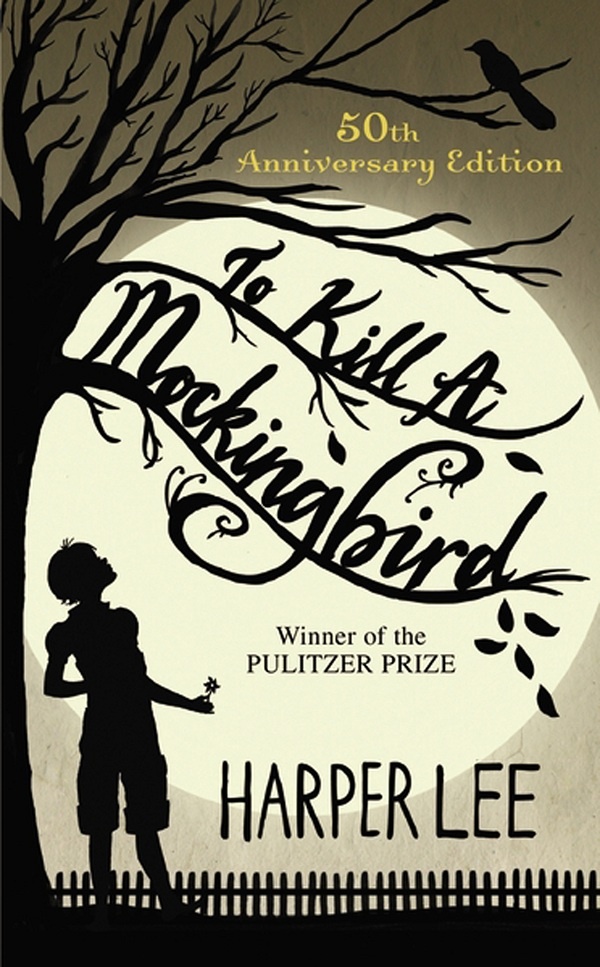As Banned Books Week comes to end, I hope the message of “celebrating your fREADom to read” stays strong. While we may not always agree with a book’s content, we shouldn’t keep others from the information. In fact, “banning” books often encourages people to seek out those very books that some want censored.
Here are a few of my favorite challenged/banned books:
 In 2003, “The Giver” was challenged as suggested reading for eighth-grade students in Blue Springs, MO, where parents called the book “lewd” and “twisted” and pleaded for it to be tossed out of the district. The book was reviewed by two committees and recommended for retention, but the controversy continued for more than two years. Lowry’s novel for young readers has frequently attracted objections due to its “mature themes” including suicide, sexuality, and euthanasia. “The Giver” received the Newbery Medal in 1994.
In 2003, “The Giver” was challenged as suggested reading for eighth-grade students in Blue Springs, MO, where parents called the book “lewd” and “twisted” and pleaded for it to be tossed out of the district. The book was reviewed by two committees and recommended for retention, but the controversy continued for more than two years. Lowry’s novel for young readers has frequently attracted objections due to its “mature themes” including suicide, sexuality, and euthanasia. “The Giver” received the Newbery Medal in 1994.
 Beginning with “Harry Potter and the Philosopher’s Stone,” published in 1997, this series of seven novels dominated both bestseller lists and the imaginations of readers across the globe. At the same time, controversy over magic and witchcraft in the stories prompted frequent book banning attempts, and even book burnings. In 2002, the books were proposed for removal, along with more than fifty other titles, by a teachers’ prayer group at the high school in Russell Springs, KY because they dealt with ghosts, cults, and witchcraft. That same year, a federal judge overturned restricted access to “Harry Potter” after parents of a Cedarville, AK fourth-grader filed a lawsuit challenging the requirement that students present written permission from a parent to borrow the books. The novels were originally challenged because they characterized authority as “stupid” and portrayed “good witches and good magic.”
Beginning with “Harry Potter and the Philosopher’s Stone,” published in 1997, this series of seven novels dominated both bestseller lists and the imaginations of readers across the globe. At the same time, controversy over magic and witchcraft in the stories prompted frequent book banning attempts, and even book burnings. In 2002, the books were proposed for removal, along with more than fifty other titles, by a teachers’ prayer group at the high school in Russell Springs, KY because they dealt with ghosts, cults, and witchcraft. That same year, a federal judge overturned restricted access to “Harry Potter” after parents of a Cedarville, AK fourth-grader filed a lawsuit challenging the requirement that students present written permission from a parent to borrow the books. The novels were originally challenged because they characterized authority as “stupid” and portrayed “good witches and good magic.”
 Published in 1960, “To Kill a Mockingbird” ranks among the true classics of modern American literature and explores complex themes of justice and compassion. It has also faced significant controversy due to its consideration of challenging issues such as rape and racial inequality. In 1995, the book was challenged in Moss Point, MS and at the Santa Cruz, CA Schools because of its racial themes. It was removed from the Southwood High School Library in Caddo Parish, LA that same year, because its language and content were found objectionable. “To Kill a Mockingbird” received the Pulitzer Prize in 1961 and Harper Lee was awarded the Presidential Medal of Freedom in 2007.
Published in 1960, “To Kill a Mockingbird” ranks among the true classics of modern American literature and explores complex themes of justice and compassion. It has also faced significant controversy due to its consideration of challenging issues such as rape and racial inequality. In 1995, the book was challenged in Moss Point, MS and at the Santa Cruz, CA Schools because of its racial themes. It was removed from the Southwood High School Library in Caddo Parish, LA that same year, because its language and content were found objectionable. “To Kill a Mockingbird” received the Pulitzer Prize in 1961 and Harper Lee was awarded the Presidential Medal of Freedom in 2007.
All information sourced from the 2010 Banned Books Week resource guide,Banned Books: Celebrating Our Freedom to Read, edited by Robert P. Doyle (ALA, 2010); the Newsletter on Intellectual Freedom; and additional content supplied by Angela Maycock, Assistant Director of ALA’s Office for Intellectual Freedom.